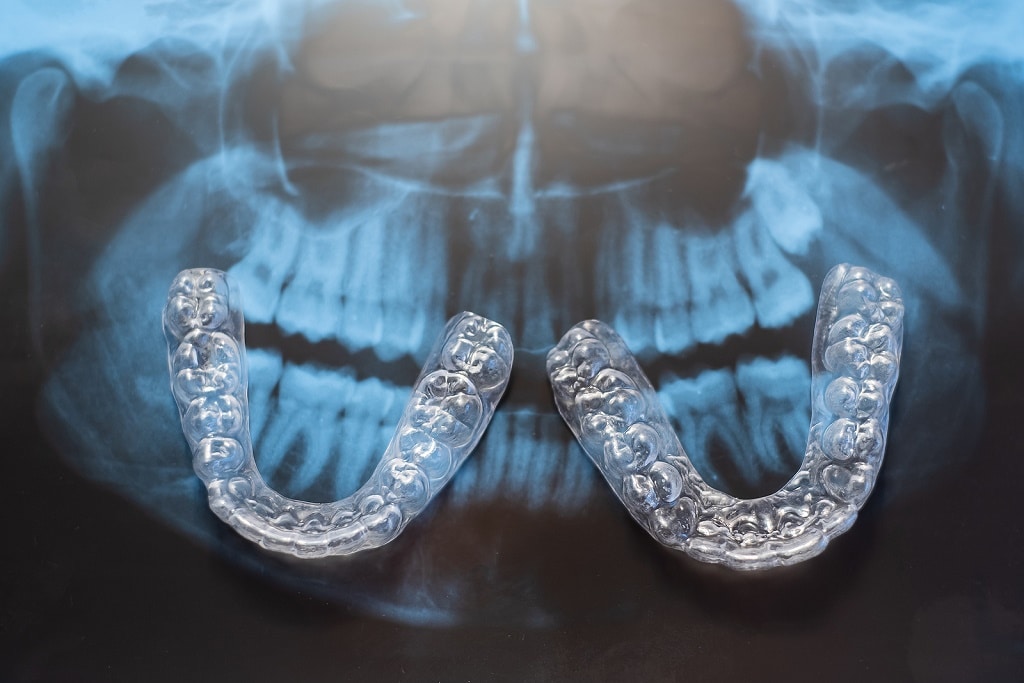

Orthodontist vs Dentist: A Comprehensive Comparison
You’re having dental problems, but you’re not sure whether you should see a dentist or an orthodontist for treatment. Choosing an orthodontist vs dentist can be confusing. After all, don’t both provide dental treatment? The short answer is yes. Both provide dental work. But seeing an orthodontist means you need special treatment that only an orthodontist has the training and the education to provide.
Dr. Mark Nalbandian and the Wired Orthodontics team are here to help you decide if an orthodontist or a dentist is right for you.
What Is a Dentist?
A dentist is a doctor who treats a wide variety of dental problems. Dentists handle overall dental care, including routine check-ups and dental procedures. Dental care includes checking the overall health of your teeth and mouth, filling cavities, placing dental crowns and veneers, and providing cleanings.

In addition, dentists provide preventative care and education to their patients to help them take better care of their teeth at home. Think of your dentist as the equivalent of a general physician.
What Is an Orthodontist?
An orthodontist is a dentist with advanced, specialized training in treating, diagnosing, preventing and treating irregularities in the teeth and jaws. Notably, an orthodontist corrects misalignments that could require braces or another type of orthodontic treatment. Problems orthodontists treat include:
- Overcrowding.
- Crookedness.
- Gaps between teeth.
- Underbite.
- Overbite.
- Crossbite.
Treatments for these problems include:
- Traditional braces.
- Lingual braces.
- Ceramic braces.
- Self-ligating braces.
- Removable clear aligner technology such as Invisalign.
If your problem affects your bite and smile, an orthodontist is who you want to treat you. Dentists are the general physicians of the dental profession, while orthodontists are the specialists.
Orthodontist vs Dentist: Education and Training
The main difference between an orthodontist vs dentist is how much education and training each receives, even though some crossover of this training and education exists.
Dentists
Dentists earn a pre-dentistry or pre-medical degree at university, often in an area of study within the biological sciences. Then it is off to dental school, where they receive extensive training, including a residency before certification. Two years of this training takes place in classrooms and labs, followed by two years treating dental patients under the careful supervision of an already licensed dentist.
Orthodontists
Orthodontists also complete a university degree, attend dental school, then receive two to three years of additional training and education in a residency program to obtain specialty certification in orthodontics. This study makes them experts on teeth and jaws, focusing on misalignments. They also complete more certification tests.
An orthodontist spends 10 or more years training before practicing orthodontics on their own, making them highly qualified professionals.
Knowing this information alone should give patients an idea of who they should see depending on what kind of dental problem patients are experiencing.
Should I See an Orthodontist or a Dentist?
Again, the type of dental problem you are experiencing will determine which dental professional you should see. You should not see an orthodontist about a minor toothache or to get teeth cleaning. These issues are usually taken care of by a dentist, who is like a general practitioner with qualifications to treat dental problems.

An orthodontist is a specialist tasked with more complex misalignments in the teeth and jaws. They have a deeper understanding of the teeth and jaws and how to fix them. If you think you need braces, an orthodontist is who you need to see.
Can a Dentist Provide Orthodontic Treatment?
While dentists can legally perform some orthodontic work with additional training, they are not specialists like orthodontists. Your dentist may also be an orthodontist. In that case, they have the training necessary to treat your misalignment issues. If your dentist does not have certification in orthodontic treatment, opting for treatment from an orthodontist is the best course of action.
Orthodontists have the training and education necessary to truly understand the mechanics of the teeth and jaws on a higher level. If you need braces, you will want the skills and attention of an orthodontist.
Can an Orthodontist Provide General Dentistry?
Because orthodontists also attend and graduate from dental school, they can provide general dentistry if they choose to offer it. However, orthodontists usually leave general dentistry, such as fillings and teeth cleanings, to general dentists so they can focus on treating patients with teeth and jaw misalignments.
However, despite being a specialist, your orthodontist will work closely with your general dentist to make sure you get the best treatment possible.
Do I Need a Referral from a Dentist to See an Orthodontist?
In general, it might be best and is sometimes a requirement to get a referral to an orthodontist from your general dentist. Make an appointment with your dentist and ask if orthodontic treatment is right for you. You can request a referral. However, some orthodontists don’t require a referral, and you can schedule an appointment by calling or visiting their website.
If your dental insurance provider requires a referral from a general dentist, it would be in your best interest to seek a referral to make insurance claims easier. Most dental insurance plans will cover at least part of the cost of your orthodontic treatment.
What Is the Cost of an Orthodontist vs Dentist?
Orthodontists and dentists usually offer low monthly payment plans to help their patients afford care. Insurance coverage helps as well. But because orthodontists are specialists, their services typically come at a higher cost, especially if you need braces, Invisalign, or another orthodontic treatment. Dr. Nalbandian is a Diamond Plus Invisalign provider in the top 1 percent worldwide.
Contact Wired Orthodontics Today!
Every patient is deserving of a healthy and beautiful smile they can be confident with. Dr. Nalbandian and the Wired Orthodontics team are ready to provide you with the treatment you need. Contact Wired Orthodontics by calling 647-344-9473 or visit our website to schedule an appointment today! We proudly serve Toronto, Scarborough, North York, Markham, and surrounding communities.
Contact Us
Why Get Braces
• Improve oral health
• Improve self confidence
• Improve self esteem
• Correct bite issues
• Improve ability to chew food
Why Choose Us?
• State of the art technology
• Experienced staff
• Commitment to patient care
• Timely and flexible appointments
• Open on Saturdays!
• Complimentary initial consultation
• Flexible payment plans
Read Patient Testimonials
